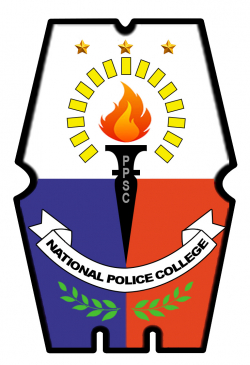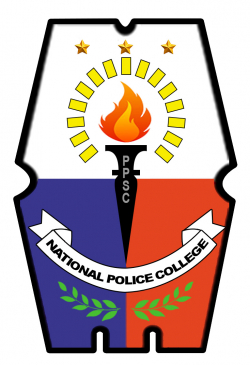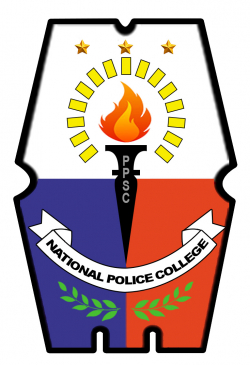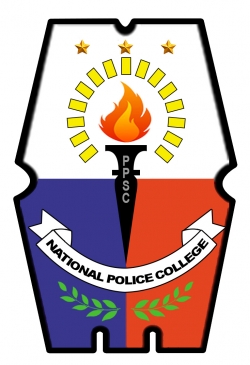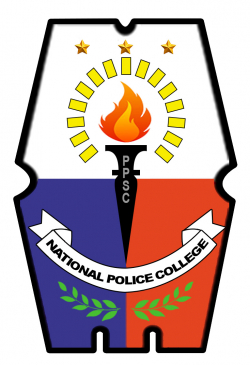PUBLIC SAFETY AND SECURITY STUDIES OF LA TRINIDAD MUNICIPALITY, BENGUET PROVINCE CORDILLERA ADMINISTRATIVE REGION
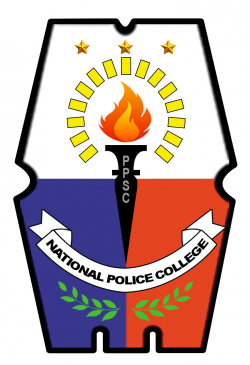
Type
Thesis
Authors
PCPT EDITH B ASPILAN ( PCPT GIDEONA A BENNAGUEN PCPT JOEL P CAMTE )
Category
PSOAC
[ Browse Items ]
Publication Year
2024
Abstract
EXECUTIVE SUMMARY
The municipality of La Trinidad Municipal is known to be the Strawberry and Rose Capital of the Philippines. It is the capital town of Benguet Province and is located 256 kilometers north of Metro Manila. The municipality has 16 barangays with a total population of 137,404 as of 2020 PSA Census. The elected Mayor is Hon. Romeo K. Salda and the LGU is located at Km. 5, Pico, La Trinidad, Benguet.
Being the capital town of Benguet, the municipality is the center of trade and industry as commercial and other vital installations are situated and most business transaction is conducted in this place. Its proximity to the city of Baguio attracts tourists, primarily to the strawberry fields in the valley and the Rose Gardens of barangay Bahong and other barangays.
La Trinidad is accessible by road and public transportation includes jeepneys, buses, taxis, and vans. Buses and vans provide connections to other destinations in Benguet province and beyond, including Baguio City and neighboring provinces. The legal system and law enforcement in La Trinidad, Benguet, Philippines, are governed by national laws and regulations, with local authorities responsible for maintaining law and order within the municipality.
The municipality’s peace and order situation are generally peaceful with no presence of Criminal Gangs and Private Armed Groups. Crime incidents occur at an average of one crime per day in 2023. Protective Services present in the locally are the Municipal Police Station (MPS), Bureau of Fire Protection (BFP), and Bureau of Jail Management and Penology (BJMP). No Armed Forces of the Philippines (AFP) is inside the area.
Scientific and technological innovation in the field of agriculture and agro-technology, research and development, environmental conservation and natural resources management, education and capacity building, and information and communication technology (ICT).
A. Public Safety and Security Threats and PSS Dimensions
LGU La Trinidad envisions to be a “La Trinidad that is safe, dynamic, ecologically-balanced and peaceful, where God-Loving and healthy people live in an atmosphere of social justice and effective governance”. In line with this vision are issues on public safety and security threats that the LGU must have to identify and address to be able to achieve its vision and mission.
The first threat identified is the presence of crimes. The most prevalent index crimes in the municipality for 2023 are theft, robbery, rape, and physical injuries and for non-index crimes, vehicular traffic accidents (VTAs), Violence Against Women and Children (VAWC) cases, Child Abuse, and Children in Conflict with the Law (CICL). The presence of illegal drugs is also a concern since drug personalities were identified and were arrested. The La Trinidad Municipal Police Station (LTMPS) records show that the use of Shabu by drug addicts is the most common in the locality (LTMPS Accomplishment Report, 2023).
On public safety, the traffic congestion is another threat along its main road, the Baguio-Bontoc National Road which is center of socio-economic activities for the municipality. The traffic congestion was caused by the increase of registered vehicles and illegal parking. Along with traffic congestion is the high incidence of Vehicular Traffic Accidents (VTAs) and the arrest of an average of 38 traffic violators per day (LTMPS Accomplishment Report, 2023).
Landslides/erosion and floods were brought about by typhoon. The municipality’s rugged topography, geologic composition, and extreme rainfall climate make it highly vulnerable to geologic hazards. Barangays Pico, Balili, Ambiong, Tawang, Bineng, Puguis and Wangal are areas identified by the MGB as landslide-prone areas. Flooding is experienced in barangays Pico and Poblacion, La Trinidad. During heavy rains, the Balili River and it tributaries are filled up with slit coming from the erosion of slopes from the mountainsides, which causes the water bodies to swell and flood the valley area and along the banks of the Balili River and its tributaries downstream (Ecological Profile, 2021).
Fire incidents specially during summer occurred. Structural fires are the most common fire incidents followed by forest fires with a total of 16 fire incidents in 2021. Ecological Profile, 2021). Environmental degradation due to air pollution is another concern. The heavy volume of traffic contributes to heavy amounts of carbon monoxide and particulates. Moreover, the Balili river suffers from heavy pollution due to various human activities including irresponsible waste disposal. The increase in solid wastes cannot be controlled as population increases and rapid urbanization come about. On solid waste segregation, the compliance rate of La Trinidad households is 92%. The municipal government advocates for at least three separate garbage cans for biodegradables, recyclables, and residuals. According to the record from the LGU MENRO, solid waste generation of La Trinidad, Benguet from residential is 56.54%. this is followed by market wastes with 27.28%, commercial/industrial wastes with 12.42%, and institutional wastes with 3.85%. Through the Bantay Basura program being implemented by the LGU, the untimely disposal of garbage is the number violation committed by the dumpers (Alos, G., 2013).
Public safety and security are affected by socio-cultural factors, political-legal, economic-technological, environment, and security. Socio-cultural factors such as close family ties can influence the commission or solution of crimes. During calamities, the LGU’s evacuation plan is challenged by the attitude of Filipinos not wanting to evacuate because they are worried with their family members. In the implementation of ordinances, traffic rules and regulations, the “palakasan” system is observed when traffic violators use this to avoid paying penalties. The “bahala na” attitude of the Filipinos during disasters is tantamount to danger when they are not abiding to warnings.
Political patronage in Benguet and weak implementation of ordinances can be observed when despite the many ordinances enacted by the LGU, violations still exist. Although La Trinidad is a First-Class municipality, poverty still exists especially in the rural barangays. As of 2015. There are 2,523 households whose income is below the poverty line. The lack of modern technology like early warning devices for floods and other disasters was noted during the interviews conducted with the employees of the LGU La Trinidad.
Carrying out law enforcement operations is challenged bt lack of PNP personnel and equipment. In fighting cybercrimes, the MPS also lacks the anti-cybercrime capability to investigate cybercrime cases. Drug addiction is a continuous challenge to the MPS to arrest drug personalities. The Bureau of Fire Protection (BFP) also needs additional personnel and equipment to enhance its capacity and capability to address fire incidents in the locality.
B. Addressing PSS Threats
On crimes, the La Trinidad MPS and the LGUs including stakeholders work hand and hand to prevent and control the occurrence of crime. Anti-crime efforts implemented are the Enhanced Managing Police operations (EMPO), Simultaneous Anti-Criminality Law Enforcement Operations (SACLEO), and “Pinaigting na Patrulya ng Pulis.” The LGU also enacted five Ordinances which focuses on neighborhood watch programs, STRAWBERRY Policing System, imposing community services for violations of municipal ordinances, and the recognition of Women’s Brigade as partners in crime prevention activities.
Traffic management initiatives have been put in place by the government, including the additional routes, enhanced public transportation, automobile emissions regulations and installation of the traffic signals. There were also two Ordinances passed to support and strengthen traffic direction and control initiatives in La Trinidad. During disasters, the MDRRMC and BRRMCs are activated to implement DRRM plan. Imposing liquor ban during calamities and implementing the La Trinidad Disaster Risk Reduction and Management Code of 2019 are Ordinances passed in support to disaster risk reduction.
The Municipal environment and Natural Resources Office (MENRO) ensure the effective and efficient management of solid wastes, communal forests & watersheds, improvement of water quality of the Balili River System-Water Quality Management Area as well as the Air quality within the Municipality. The MENRO also supervises the effective implementation of the Bantay Basura Program of the municipality.
With the above issues and concerns on public safety and security threats and the interventions being implemented by the LGU, PNP, BFP and other stakeholders, this study further recommends the following measures to further enhance its public safety and security in the community:
On crimes, there is a need to revisit its deployment plan especially during night time where most of these cases happened;
In addressing cases of VAWC, Child Abuse and Children in Conflict with the Law, LTMPS needs to consider a long-term intervention to this problem such as the establishment of women’s desk closer to schools and is manned by WCPD in civilian attire. The objective behind this project is to let the children be familiar and be closer to the WCPD personnel. The closer relationship and familiarity with PNP personnel will encourage the children to report or confides any abuses or untoward incident.
On traffic congestion and VTAs, the LGU needs to be strict in the implementation of anti-traffic obstruction especially during rush hours.
On landslides/erosion, Little Kibungan; Buyagan, Poblacion which has been declared by the MGB to be not habitable should be strictly monitored by the LGU so that no structure or development should be erected in those declared places.
Through LGU’s initiative, drainage canals should be well maintained especially during rainy season. Additional drainages should be constructed.
For pollution and solid wastes, the LGU should continuously advocate for the protection, regulation in sanitation, and rehabilitation programs for the Balili River including its headwaters in nearby Baguio City and likewise within the municipality itself. The municipality also needs to comply with the land requirements of 12.79 hectares since solid wastes being collected will increase as population increase.
The municipality of La Trinidad Municipal is known to be the Strawberry and Rose Capital of the Philippines. It is the capital town of Benguet Province and is located 256 kilometers north of Metro Manila. The municipality has 16 barangays with a total population of 137,404 as of 2020 PSA Census. The elected Mayor is Hon. Romeo K. Salda and the LGU is located at Km. 5, Pico, La Trinidad, Benguet.
Being the capital town of Benguet, the municipality is the center of trade and industry as commercial and other vital installations are situated and most business transaction is conducted in this place. Its proximity to the city of Baguio attracts tourists, primarily to the strawberry fields in the valley and the Rose Gardens of barangay Bahong and other barangays.
La Trinidad is accessible by road and public transportation includes jeepneys, buses, taxis, and vans. Buses and vans provide connections to other destinations in Benguet province and beyond, including Baguio City and neighboring provinces. The legal system and law enforcement in La Trinidad, Benguet, Philippines, are governed by national laws and regulations, with local authorities responsible for maintaining law and order within the municipality.
The municipality’s peace and order situation are generally peaceful with no presence of Criminal Gangs and Private Armed Groups. Crime incidents occur at an average of one crime per day in 2023. Protective Services present in the locally are the Municipal Police Station (MPS), Bureau of Fire Protection (BFP), and Bureau of Jail Management and Penology (BJMP). No Armed Forces of the Philippines (AFP) is inside the area.
Scientific and technological innovation in the field of agriculture and agro-technology, research and development, environmental conservation and natural resources management, education and capacity building, and information and communication technology (ICT).
A. Public Safety and Security Threats and PSS Dimensions
LGU La Trinidad envisions to be a “La Trinidad that is safe, dynamic, ecologically-balanced and peaceful, where God-Loving and healthy people live in an atmosphere of social justice and effective governance”. In line with this vision are issues on public safety and security threats that the LGU must have to identify and address to be able to achieve its vision and mission.
The first threat identified is the presence of crimes. The most prevalent index crimes in the municipality for 2023 are theft, robbery, rape, and physical injuries and for non-index crimes, vehicular traffic accidents (VTAs), Violence Against Women and Children (VAWC) cases, Child Abuse, and Children in Conflict with the Law (CICL). The presence of illegal drugs is also a concern since drug personalities were identified and were arrested. The La Trinidad Municipal Police Station (LTMPS) records show that the use of Shabu by drug addicts is the most common in the locality (LTMPS Accomplishment Report, 2023).
On public safety, the traffic congestion is another threat along its main road, the Baguio-Bontoc National Road which is center of socio-economic activities for the municipality. The traffic congestion was caused by the increase of registered vehicles and illegal parking. Along with traffic congestion is the high incidence of Vehicular Traffic Accidents (VTAs) and the arrest of an average of 38 traffic violators per day (LTMPS Accomplishment Report, 2023).
Landslides/erosion and floods were brought about by typhoon. The municipality’s rugged topography, geologic composition, and extreme rainfall climate make it highly vulnerable to geologic hazards. Barangays Pico, Balili, Ambiong, Tawang, Bineng, Puguis and Wangal are areas identified by the MGB as landslide-prone areas. Flooding is experienced in barangays Pico and Poblacion, La Trinidad. During heavy rains, the Balili River and it tributaries are filled up with slit coming from the erosion of slopes from the mountainsides, which causes the water bodies to swell and flood the valley area and along the banks of the Balili River and its tributaries downstream (Ecological Profile, 2021).
Fire incidents specially during summer occurred. Structural fires are the most common fire incidents followed by forest fires with a total of 16 fire incidents in 2021. Ecological Profile, 2021). Environmental degradation due to air pollution is another concern. The heavy volume of traffic contributes to heavy amounts of carbon monoxide and particulates. Moreover, the Balili river suffers from heavy pollution due to various human activities including irresponsible waste disposal. The increase in solid wastes cannot be controlled as population increases and rapid urbanization come about. On solid waste segregation, the compliance rate of La Trinidad households is 92%. The municipal government advocates for at least three separate garbage cans for biodegradables, recyclables, and residuals. According to the record from the LGU MENRO, solid waste generation of La Trinidad, Benguet from residential is 56.54%. this is followed by market wastes with 27.28%, commercial/industrial wastes with 12.42%, and institutional wastes with 3.85%. Through the Bantay Basura program being implemented by the LGU, the untimely disposal of garbage is the number violation committed by the dumpers (Alos, G., 2013).
Public safety and security are affected by socio-cultural factors, political-legal, economic-technological, environment, and security. Socio-cultural factors such as close family ties can influence the commission or solution of crimes. During calamities, the LGU’s evacuation plan is challenged by the attitude of Filipinos not wanting to evacuate because they are worried with their family members. In the implementation of ordinances, traffic rules and regulations, the “palakasan” system is observed when traffic violators use this to avoid paying penalties. The “bahala na” attitude of the Filipinos during disasters is tantamount to danger when they are not abiding to warnings.
Political patronage in Benguet and weak implementation of ordinances can be observed when despite the many ordinances enacted by the LGU, violations still exist. Although La Trinidad is a First-Class municipality, poverty still exists especially in the rural barangays. As of 2015. There are 2,523 households whose income is below the poverty line. The lack of modern technology like early warning devices for floods and other disasters was noted during the interviews conducted with the employees of the LGU La Trinidad.
Carrying out law enforcement operations is challenged bt lack of PNP personnel and equipment. In fighting cybercrimes, the MPS also lacks the anti-cybercrime capability to investigate cybercrime cases. Drug addiction is a continuous challenge to the MPS to arrest drug personalities. The Bureau of Fire Protection (BFP) also needs additional personnel and equipment to enhance its capacity and capability to address fire incidents in the locality.
B. Addressing PSS Threats
On crimes, the La Trinidad MPS and the LGUs including stakeholders work hand and hand to prevent and control the occurrence of crime. Anti-crime efforts implemented are the Enhanced Managing Police operations (EMPO), Simultaneous Anti-Criminality Law Enforcement Operations (SACLEO), and “Pinaigting na Patrulya ng Pulis.” The LGU also enacted five Ordinances which focuses on neighborhood watch programs, STRAWBERRY Policing System, imposing community services for violations of municipal ordinances, and the recognition of Women’s Brigade as partners in crime prevention activities.
Traffic management initiatives have been put in place by the government, including the additional routes, enhanced public transportation, automobile emissions regulations and installation of the traffic signals. There were also two Ordinances passed to support and strengthen traffic direction and control initiatives in La Trinidad. During disasters, the MDRRMC and BRRMCs are activated to implement DRRM plan. Imposing liquor ban during calamities and implementing the La Trinidad Disaster Risk Reduction and Management Code of 2019 are Ordinances passed in support to disaster risk reduction.
The Municipal environment and Natural Resources Office (MENRO) ensure the effective and efficient management of solid wastes, communal forests & watersheds, improvement of water quality of the Balili River System-Water Quality Management Area as well as the Air quality within the Municipality. The MENRO also supervises the effective implementation of the Bantay Basura Program of the municipality.
With the above issues and concerns on public safety and security threats and the interventions being implemented by the LGU, PNP, BFP and other stakeholders, this study further recommends the following measures to further enhance its public safety and security in the community:
On crimes, there is a need to revisit its deployment plan especially during night time where most of these cases happened;
In addressing cases of VAWC, Child Abuse and Children in Conflict with the Law, LTMPS needs to consider a long-term intervention to this problem such as the establishment of women’s desk closer to schools and is manned by WCPD in civilian attire. The objective behind this project is to let the children be familiar and be closer to the WCPD personnel. The closer relationship and familiarity with PNP personnel will encourage the children to report or confides any abuses or untoward incident.
On traffic congestion and VTAs, the LGU needs to be strict in the implementation of anti-traffic obstruction especially during rush hours.
On landslides/erosion, Little Kibungan; Buyagan, Poblacion which has been declared by the MGB to be not habitable should be strictly monitored by the LGU so that no structure or development should be erected in those declared places.
Through LGU’s initiative, drainage canals should be well maintained especially during rainy season. Additional drainages should be constructed.
For pollution and solid wastes, the LGU should continuously advocate for the protection, regulation in sanitation, and rehabilitation programs for the Balili River including its headwaters in nearby Baguio City and likewise within the municipality itself. The municipality also needs to comply with the land requirements of 12.79 hectares since solid wastes being collected will increase as population increase.
Number of Copies
1
| Library | Accession No | Call No | Copy No | Edition | Location | Availability |
|---|---|---|---|---|---|---|
| NPC Library | 676810 | 1 | Yes |
